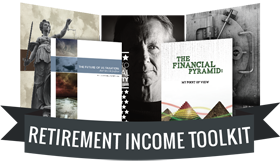Twenty thirteen is in the rear view mirror and it is amazing how clear the picture. Last year, can you recall any market expert projecting a thirty percent return in the S&P 500? I don’t.
The S&P 500 gained 32.39 percent last year and the NASDAQ was up a mind boggling 40.12 percent. Bonds as measured by the Barclay’s Aggregate Bond Index posted its first negative return year since 1998, losing -2.02 percent. Commodities in general and gold in particular were crushed in 2013 as 27.79 percent of gold’s value melted away. International stocks continued to lag their U.S. counterparts but still gained 22.78 percent. Emerging market stocks are saving their best for another year after losing -2.60 percent.
Much more important than one year of performance numbers – what is your mindset heading into a new calendar year? This may be a good time to reflect and assess your investment attitude from one year ago and compare it to today. Twelve months ago, many investors were frustrated with the political climate in the U.S. and fearful of the looming “fiscal cliff” and its implications for the financial markets. Hopefully your emotions combined with the sensationalized headlines of the day did not derail your investment program. If it did, let experience be your teacher as we begin a new year.
The New Year brings both uncertainty and opportunity. There will not be a shortfall of market opinions. Some will be projecting the much awaited market correction, others will be riding the bull train, and the majority will likely be calling for a return to normal in the stock market with 2014 returns in the single digits. It would be easy if we knew next year’s outcome, but we don’t and we never will. Realize these are just opinions. Some will be right, many will be wrong and the markets will move through time surprising the majority.
Before you get swept up in all the hype surrounding 2014, take a moment to tune out the media noise and focus on those things under your control. If your goal is to build wealth or maintain wealth there are five controllable factors to contemplate.
First, evaluate both your saving and spending habits and determine if these are in sync with your lifestyle. How much one saves is a key component in building or maintaining the nest egg. Understanding your time horizon and making the proper asset allocation are paramount. Controlling investment expenses and properly managing the tax burden are somewhat controllable and will impact wealth creation. Keep your focus on the controllable and free yourself of the one thing you cannot control – the annual return on those assets. Instinctively we are drawn to what the market did yesterday or speculate on what it is going to do tomorrow. Focus on the factors you control and eliminate any knee jerk emotional reactions to market movements.
